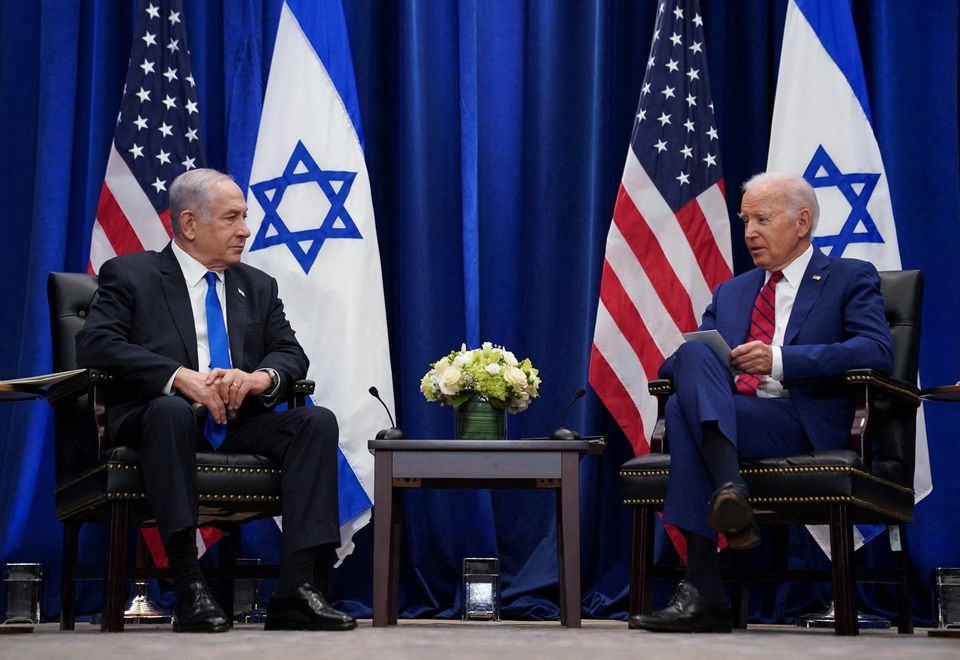In the midst of escalating conflict in the Middle East, U.S. President Joe Biden and Israeli Prime Minister Benjamin Netanyahu, known for their strained relationship, find themselves thrust into an uneasy wartime partnership. The recent deadly attack by Hamas militants from Gaza into Israel has forced these leaders, who have often clashed over their divergent Middle East policies, to set aside their differences and collaborate in the face of a potential ground assault on the Palestinian Gaza Strip.
Strained Relations and Deep-Seated Differences
Despite their long-standing acquaintance, Biden and Netanyahu have had a history of discord, with their recent disagreements further exacerbating their uneasy alliance. Biden’s administration has emphasized support for both independent Israeli and Palestinian states, regularly urging Netanyahu to halt the expansion of Jewish settlements in the occupied West Bank. In contrast, Netanyahu, who returned to office in late December, opposes Palestinian statehood and has approved the construction of thousands of new housing units for West Bank settlers. Their differences go beyond this, extending back to the Obama era when Netanyahu attempted to derail the U.S.-backed Iran nuclear deal during Biden’s tenure as vice president.
The Role of International Players
The current conflict is further complicated by the involvement of international players. Hamas, responsible for the attacks, is backed by Iran, Israel’s regional arch-foe. Netanyahu had previously aligned himself with former President Donald Trump, who held staunch pro-Israel policies. However, he remained cautious and refrained from taking sides during the U.S. presidential campaign. After the recent deadly Hamas assault, Biden set aside his differences with Netanyahu, pledging unwavering U.S. support and bolstering Israel’s military arsenal, demonstrating a united front.
Broader Implications and Challenges Ahead
As the situation in the Middle East continues to escalate, President Biden faces the challenge of preventing a wider war in the region. He has directed his team to engage with Gulf and neighboring countries to prevent Hezbollah, an Iran-backed Lebanese group, from opening a second front on Israel’s northern border. While Biden appears to support Israel’s actions for now, experts predict that if the conflict drags on and the death toll continues to rise, he may change his approach and seek to end the fighting through diplomatic channels.
At home, President Biden faces pressure from both sides of the political spectrum. Republican hardliners accuse him of emboldening Iran, while some Democrats question the need for Israel’s substantial military aid package and call for greater support for the Palestinians. The pro-Israel lobby, including AIPAC, remains influential in U.S. politics and is expected to play a significant role in the 2024 election.
In conclusion, as the Israel-Hamas conflict unfolds, the uneasy partnership between Biden and Netanyahu is being put to the test. Their collaboration, while born out of necessity, reflects the complex dynamics of the Middle East and the challenges facing the United States in the region.
















